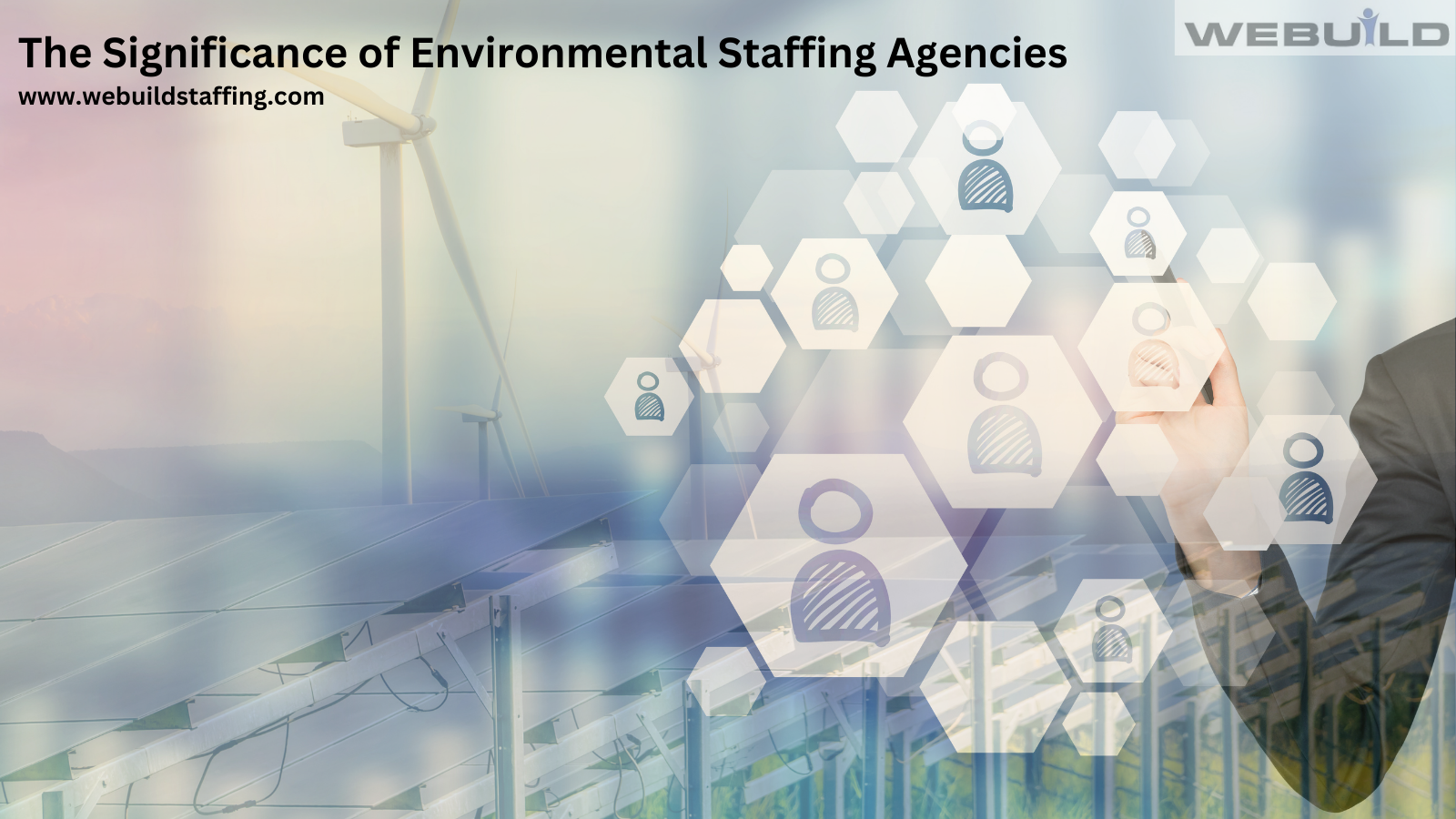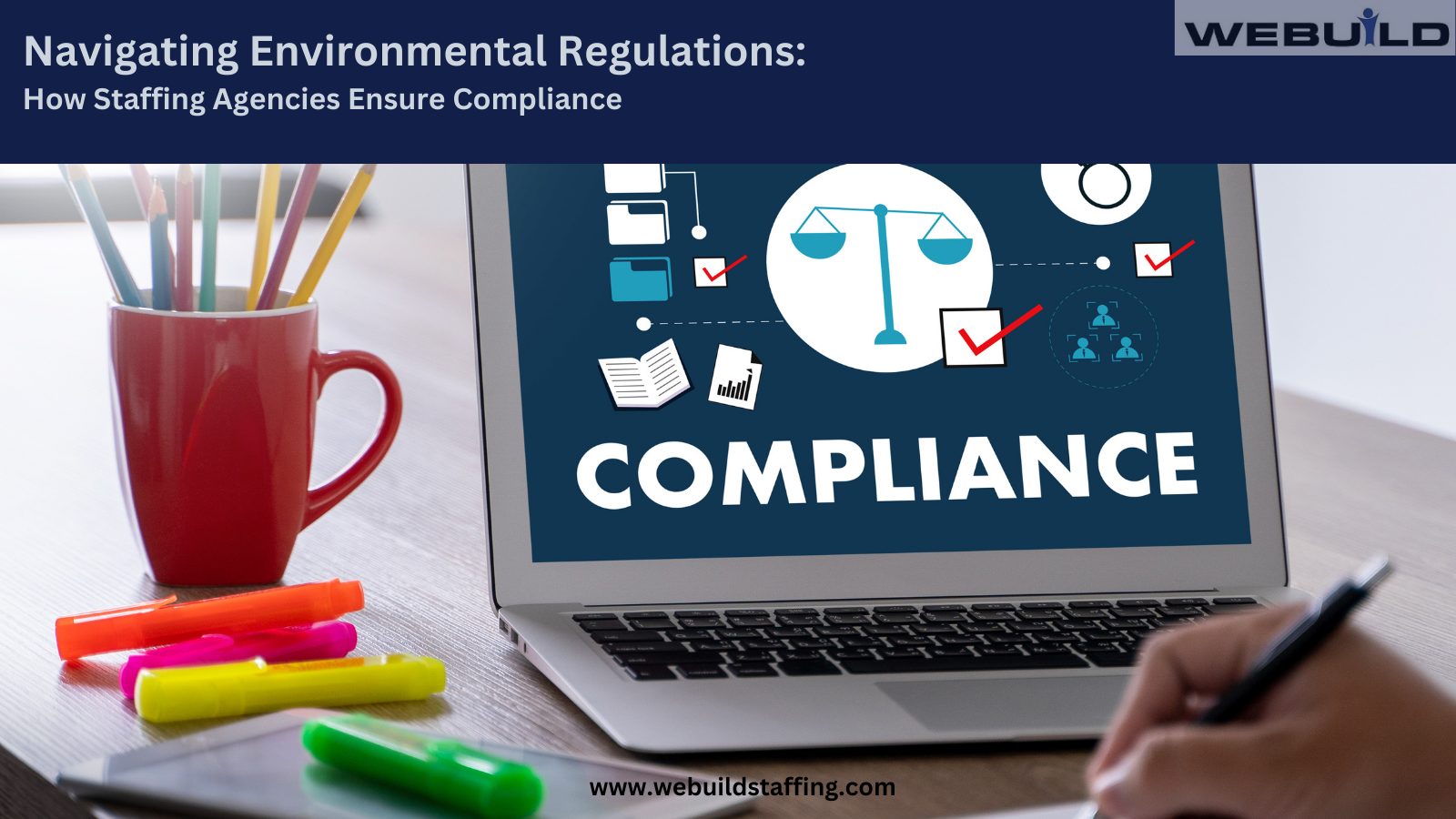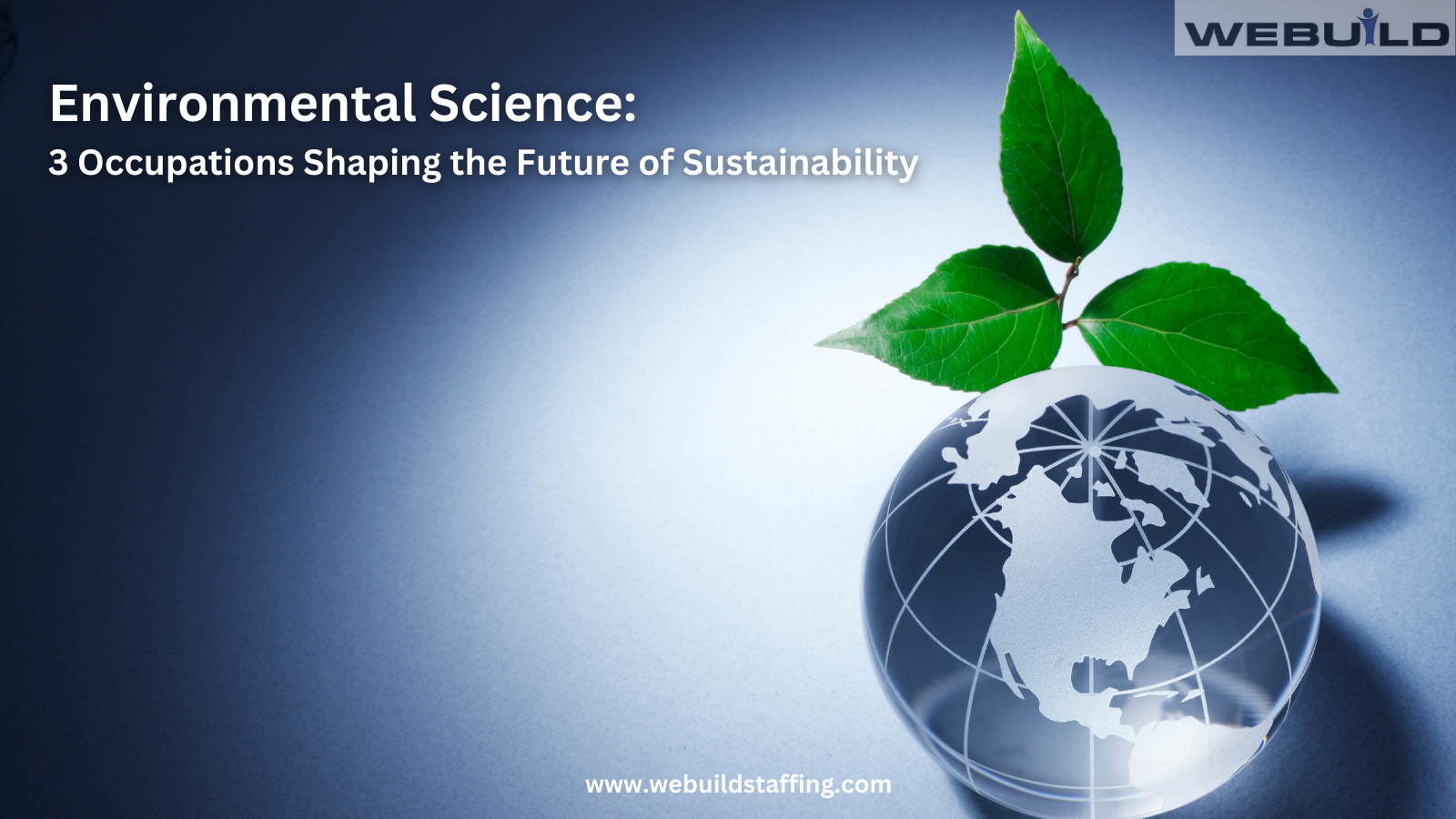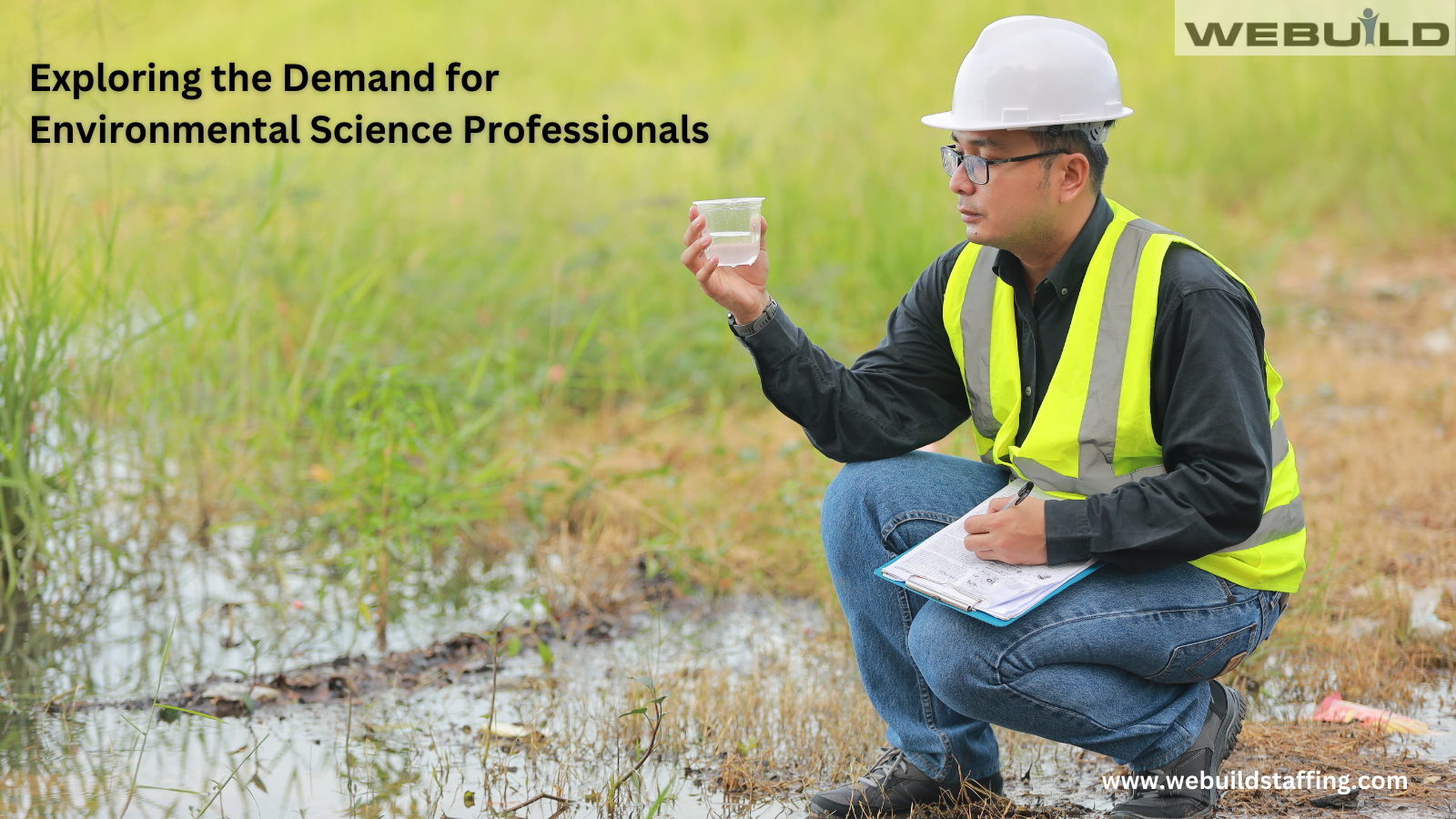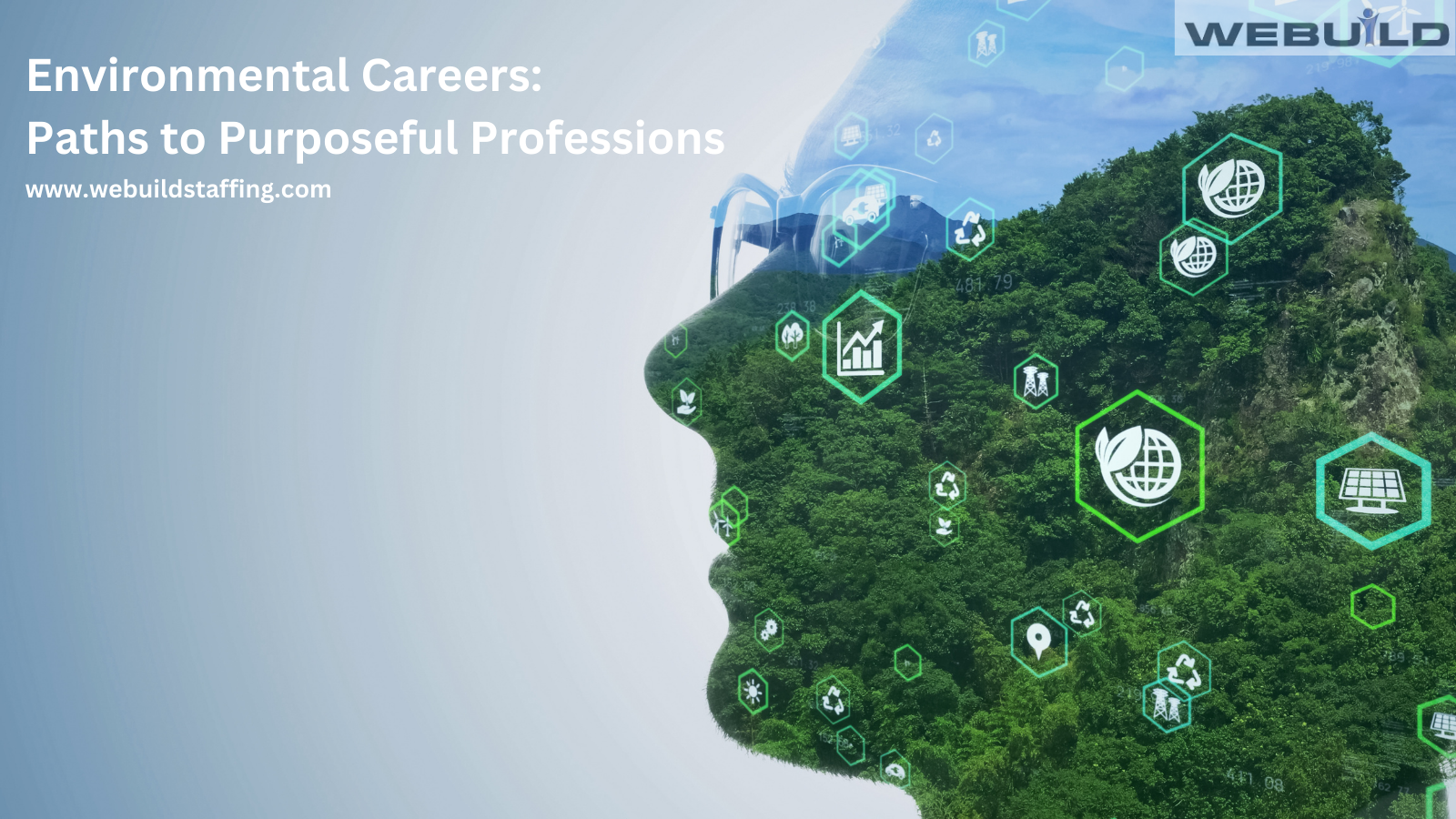Freelancing and Consulting in Environmental Industry: Paving the Path to Independent Success
WEBUILD STAFFING BLOG |
Freelancing and Consulting in Environmental Industry: Paving the Path to Independent Success

The landscape of employment is rapidly evolving, and traditional nine-to-five jobs are no longer the only way to build a successful career. Freelancing and consulting in environmental industry offer a compelling alternative, allowing professionals to achieve independent success while making a significant impact in the field of sustainability and conservation. let explore the world of freelancing and consulting in environmental industry, highlighting the benefits, challenges, and key steps to thrive as an independent environmental professional.
The Rise of Freelancing in Environmental industry
The gig economy is flourishing, and environmental professionals are not far behind in embracing this trend. Freelancing allows experts to take control of their careers, choose projects that align with their interests, and work with a diverse range of clients. It offers flexibility and the opportunity to build a portfolio of environmental projects that reflect one’s expertise and values.
Consulting as a Path to Independence
Consulting, on the other hand, involves providing specialized advice and services to clients, often on a contractual basis. Environmental consultants offer insights, strategies, and solutions to businesses, organizations, and governments seeking to address environmental challenges. Consulting can be a lucrative and rewarding way to leverage one’s expertise while enjoying the freedom of independent work.
Benefits of Freelancing and Consulting in Environmental Industry
- Autonomy: Freelancers and consultants have control over their schedules, projects, and clients, allowing for a better work-life balance.
- Variety: The diversity of projects and clients keeps the work engaging and fosters continuous learning.
- Impact: Freelancers and consultants have the opportunity to work on projects that align with their environmental values, making a meaningful impact.
- Income Potential: Successful environmental freelancers and consultants often earn competitive rates for their specialized expertise.
- Networking: Working with different clients fosters a wide network of contacts and potential collaborations.
Building a Niche in Environmental Freelancing and Consulting
To succeed in the competitive world of environmental freelancing and consulting, it’s essential to identify and develop a niche. This involves specializing in a specific area of environmental work where you have expertise and a passion. Some niches include:
- Sustainable Agriculture: Advising farmers on eco-friendly practices and sustainable crop management.
- Renewable Energy: Consulting on solar, wind, or hydroelectric projects for clients seeking clean energy solutions.
- Waste Management: Offering waste reduction and recycling strategies for businesses and municipalities.
- Environmental Policy: Providing expertise in environmental regulations and policy advocacy.
To achieve your goals, efforts should be made to address a few key areas:
1. Building Your Portfolio
A strong portfolio is essential for showcasing your skills and attracting clients. Start by taking on small projects or volunteering your expertise to build your portfolio. Include case studies, project descriptions, and client testimonials to demonstrate your capabilities.
2. Marketing and Branding
Freelancers and consultants need to market themselves effectively to attract clients. Create a professional online presence through a website and social media profiles. Use these platforms to share your expertise, insights, and the positive impact of your work.
3. Networking and Client Acquisition
Networking is crucial for finding clients in the world of environmental freelancing and consulting. Attend industry conferences, join environmental organizations, and actively participate in online environmental communities. Word-of-mouth referrals from satisfied clients can also be a powerful source of new projects.
4. Pricing Your Services
Determining the right pricing for your services is a critical aspect of freelancing and consulting. Research industry standards and consider factors like your level of expertise, the complexity of the project, and the market demand. Be transparent about your pricing with clients to build trust.
5. Managing Finances and Taxes
As an independent environmental professional, you’ll need to manage your finances effectively. Keep accurate records of your income and expenses, set aside money for taxes, and consider consulting with an accountant or financial advisor to ensure your financial stability.
6. Handling Contracts and Agreements
Clear contracts and agreements are essential to protect both you and your clients. Specify project scope, timelines, deliverables, payment terms, and any confidentiality agreements in writing. This helps prevent misunderstandings and disputes.
7. Balancing Work and Life
The freedom of freelancing and consulting can be liberating, but it can also blur the boundaries between work and personal life. It’s crucial to establish a healthy work-life balance to avoid burnout. Set boundaries, schedule regular breaks, and prioritize self-care.
8. Staying Informed and Adapting
The environmental field is dynamic, with evolving challenges and solutions. To remain competitive, stay informed about the latest trends, technologies, and research in your niche. Be adaptable and open to learning new skills as needed.
9. Collaborating with Other Professionals
Collaboration with other freelancers or consultants in related fields can lead to exciting opportunities. Partnering with experts in complementary areas can allow you to take on larger and more complex projects.
10. Building a Sustainable Business Model
As you gain experience and reputation, consider developing a sustainable business model. This might involve hiring additional professionals, scaling your services, or diversifying your income streams.
11. Embracing Remote Work and Digital Tools
The COVID-19 pandemic has accelerated the adoption of remote work and digital tools. Embrace technology to collaborate with clients and colleagues, conduct virtual meetings, and manage projects efficiently.
12. Environmental Impact and Responsibility
As environmental professionals, it’s essential to practice what you preach. Incorporate sustainability into your own business practices, such as reducing waste, minimizing energy consumption, and supporting eco-friendly suppliers and services.
Conclusion:
Freelancing and consulting in environmental work offer a path to independence, impact, and success. By identifying your niche, building a strong portfolio, marketing yourself effectively, and managing your business responsibly, you can thrive as an independent environmental professional. Whether you’re an experienced expert or just starting, the world of environmental freelancing and consulting is ripe with opportunities to make a positive difference in the field of sustainability and conservation.
Webuild Staffing Agency is a leading executive search and staffing agency dedicated to the construction, engineering and environmental industries. To learn more please visit: www.webuildstaffing.com


